Aging brings with it an array of less-than-pleasant realities—diminished energy, increased fragility, and a heightened susceptibility to various diseases. While this paints a rather grim picture, there are interventions available that may counteract some of these effects. Resveratrol, a polyphenol present in certain fruits, nuts, and wine, is one such intervention that has been extensively studied for its potential to mitigate aging through its anti-inflammatory, antioxidant, and memory-enhancing properties.
What is Resveratrol?
Resveratrol is a naturally occurring compound found in the skin of red grapes, blueberries, peanuts, and red wine. This compound has been the focus of numerous studies investigating its benefits in extending lifespan, reducing inflammation, and improving overall health. The compound has gained significant attention for its reported anti-aging and disease-fighting capabilities, particularly in combating heart disease, diabetes, and cancer.
Resveratrol belongs to a category of compounds known as polyphenols. These are believed to function as antioxidants, shielding the body from damage that increases the risk of conditions such as cancer and cardiovascular diseases.
This compound is present in the skins of red grapes and can also be found in peanuts, red wine, berries, and other foods.
Manufacturers have endeavored to harness its benefits by producing resveratrol supplements. Most of the resveratrol capsules available in the U.S. are derived from extracts of an Asian plant called Polygonum cuspidatum. Some supplements are also made using red wine or red grape extracts.
Advertisements for these supplements on the internet claim benefits ranging from weight loss to enhanced longevity.
Do resveratrol supplements actually fulfill these promises?
Benefits of Resveratrol
Resveratrol has garnered considerable attention for its purported anti-aging and disease-combatting properties. Researchers have postulated for some time that certain substances in red wine may confer health benefits. Since the 1990s, attention has particularly focused on resveratrol, an antioxidant compound in red wine. Various animal and laboratory studies have indicated that resveratrol may have potent antiviral, anti-inflammatory, and anticancer properties.
However, while experts acknowledge its potential, there is insufficient data to definitively confirm its efficacy. Resveratrol supplements have not undergone extensive human studies, leaving the exact benefits and risks uncertain. It remains unclear whether resveratrol is more critical than other natural substances found in wine.
Nevertheless, preliminary research indicates that resveratrol might help protect against:
- Heart Disease: It may help reduce inflammation, lower LDL or “bad” cholesterol, and inhibit clot formation, which can lead to heart attacks.
- Diabetes: Resveratrol helps prevent insulin resistance, a condition in which the body becomes less responsive to the blood sugar-lowering hormone insulin, potentially leading to diabetes.
Researchers believe resveratrol activates the SIRT1 gene, which is thought to protect the body against the effects of obesity and age-related diseases.
Side Effects
To date, studies have not identified any serious side effects, even with high doses of resveratrol. Consuming resveratrol in quantities naturally found in foods is generally considered safe, though it could trigger reactions in those allergic to grapes or wine.
Individuals with health conditions like bleeding disorders should consult their doctor before taking resveratrol supplements.
If you regularly take any medications or other supplements, discuss with your healthcare provider before starting resveratrol supplements. They might interact with medications such as blood thinners, blood pressure drugs, cancer treatments, MAOI antidepressants, antiviral and antifungal medicines, NSAID painkillers, and supplements like St. John’s wort, garlic, and ginkgo.
As with other supplements, the FDA does not regulate resveratrol, making it challenging for consumers to know the exact content or efficacy of the product. There is also no specific dosage recommendation, and required amounts can vary between supplements.
Most resveratrol supplements contain doses much lower than those shown to be beneficial in research, typically between 250 to 500 milligrams. To achieve the dosages used in some studies, individuals would need to consume 2 grams (2,000 milligrams) or more daily. Consult your doctor for advice.
Best Form of Resveratrol for Intake
When it comes to resveratrol, there are two main types: cis-resveratrol and trans-resveratrol. These forms have different molecular structures but similar chemical compositions. Cis-resveratrol is primarily found in foods like red wine and dark chocolate, while trans-resveratrol is more commonly available in supplements or fortified foods such as juices and yogurt drinks. The key difference lies in their bioavailability, with trans-resveratrol being more readily absorbed and utilized by the body.
Choosing the Right Resveratrol Supplement
Purity and potency are crucial criteria in choosing the right resveratrol supplement. Ensuring that the supplement is free from contaminants and has a high concentration of active ingredients can significantly impact its effectiveness.
- Purity Check: Ensuring Contaminant-Free Supplements
- High dosages do not always equate to higher purity. For instance, a 500mg compound with 50% purity is similar in purity to a 300mg compound with 98% purity.
- Potency Check: Determining Supplement Strength
- Trans-resveratrol is more biologically active and effective for absorption compared to regular resveratrol. For optimal results, seek out supplements containing trans-resveratrol in a highly bioavailable form.
Top 10 Resveratrol Supplements in 2024
After careful consideration based on purity and potency, here are the top picks for resveratrol supplements:
1. Decode Age Resveratrol Supplement
- Source: Japanese Knotweed Extract
- Purity: Exceeding 99%
- Benefits: Antioxidant, anti-inflammatory, improves metabolism, regulates blood sugar, enhances skin and heart health, improves cognitive function, and mimics calorie restriction.
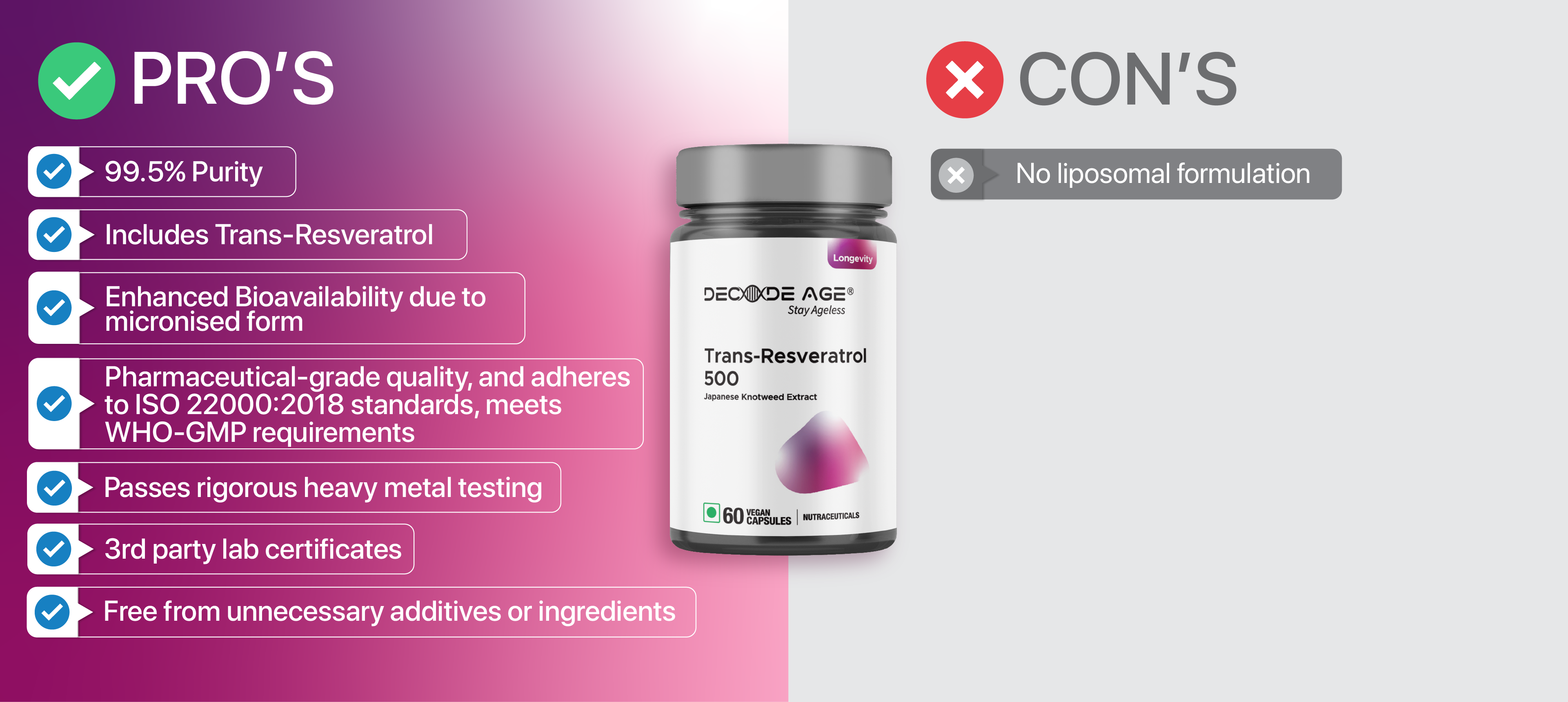
2. Decode Age ResVit Blend
- Ingredients: Trans-Resveratrol, Pterostilbene, and other potent antioxidants
- Purity: 99%
- Benefits: Antioxidant, anti-inflammatory, improves heart health, metabolism, eye and skin health, enhances sleep, and manages weight.
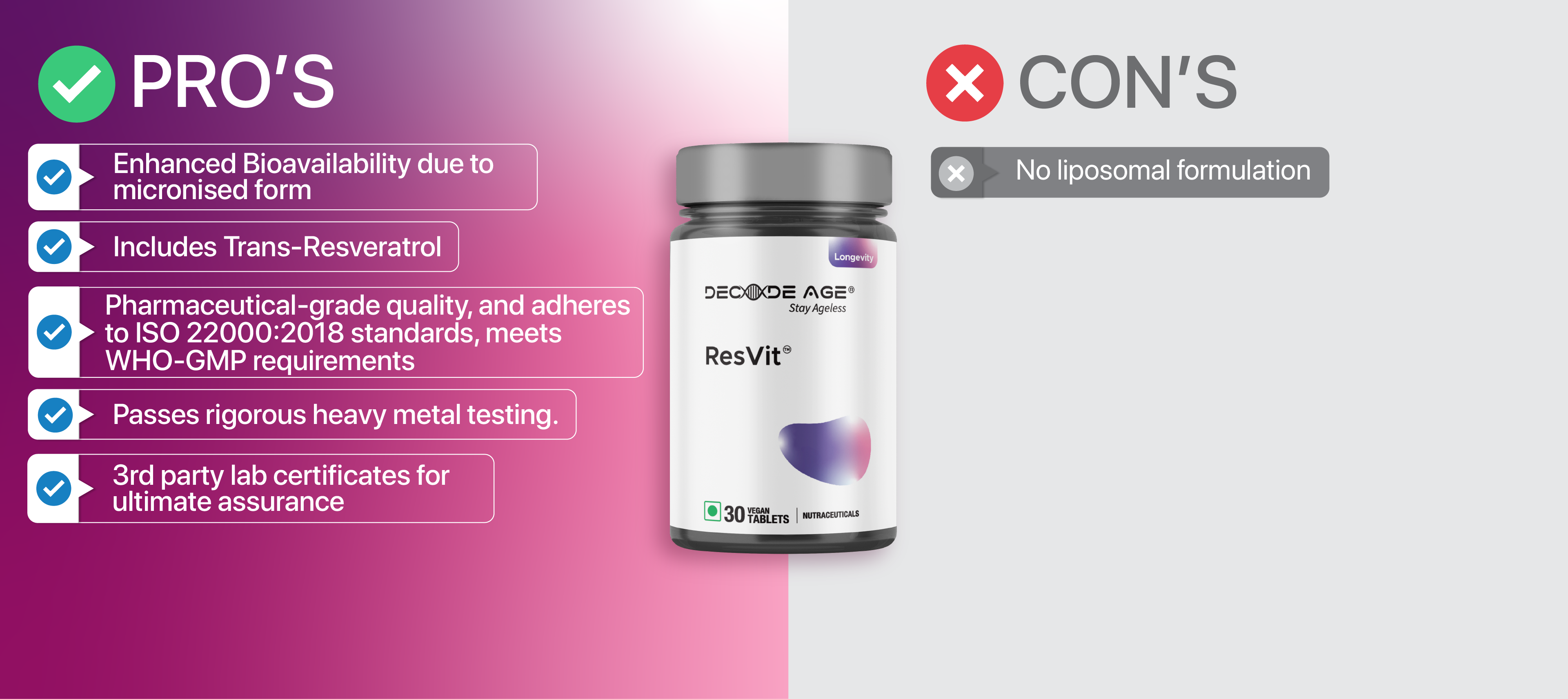
3. ProHealth Resveratrol
- Source: Veri-te® Bioavailable Trans-Resveratrol
- Purity: 99.5%
- Benefits: Antioxidant, supports brain health, improves heart health, increases metabolism.
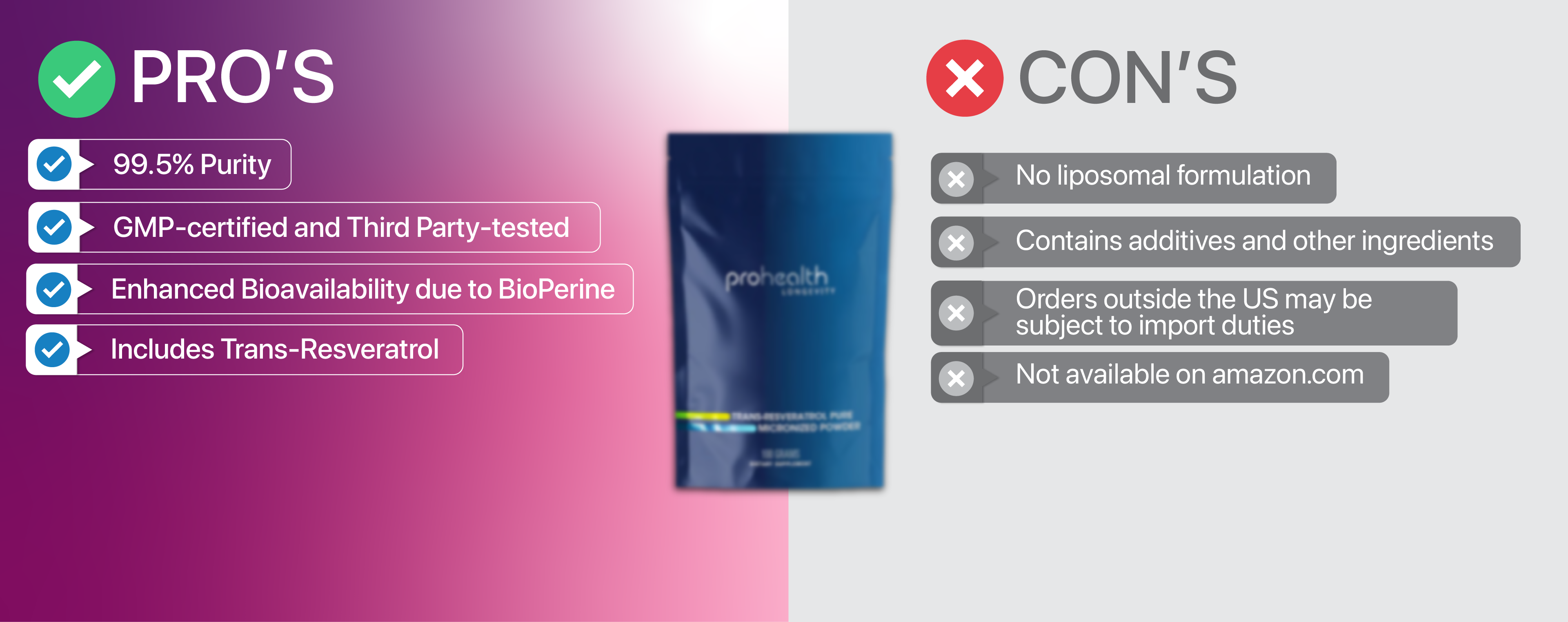
4. Purovitalis Liposomal Resveratrol
- Delivery System: Liposomal
- Dosage: 240 mg per serving
- Benefits: Activates sirtuins, improves metabolism, regulates blood sugar, antioxidant properties.
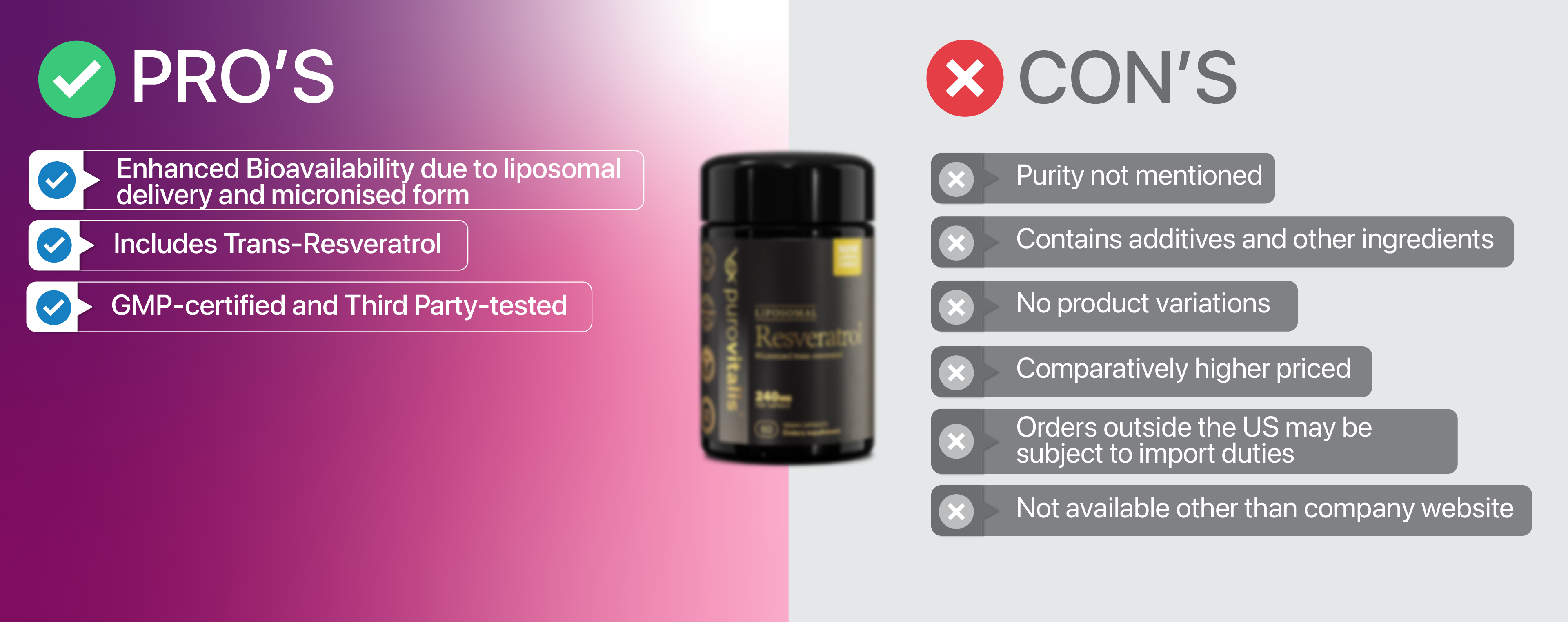
5. Renue By Science Resveratrol
- Purity: 98%
- Forms: Crystalline powder and capsules
- Technology: Liposomal
- Benefits: Antioxidant, anti-inflammatory, improves heart health, enhances metabolism, supports brain health.
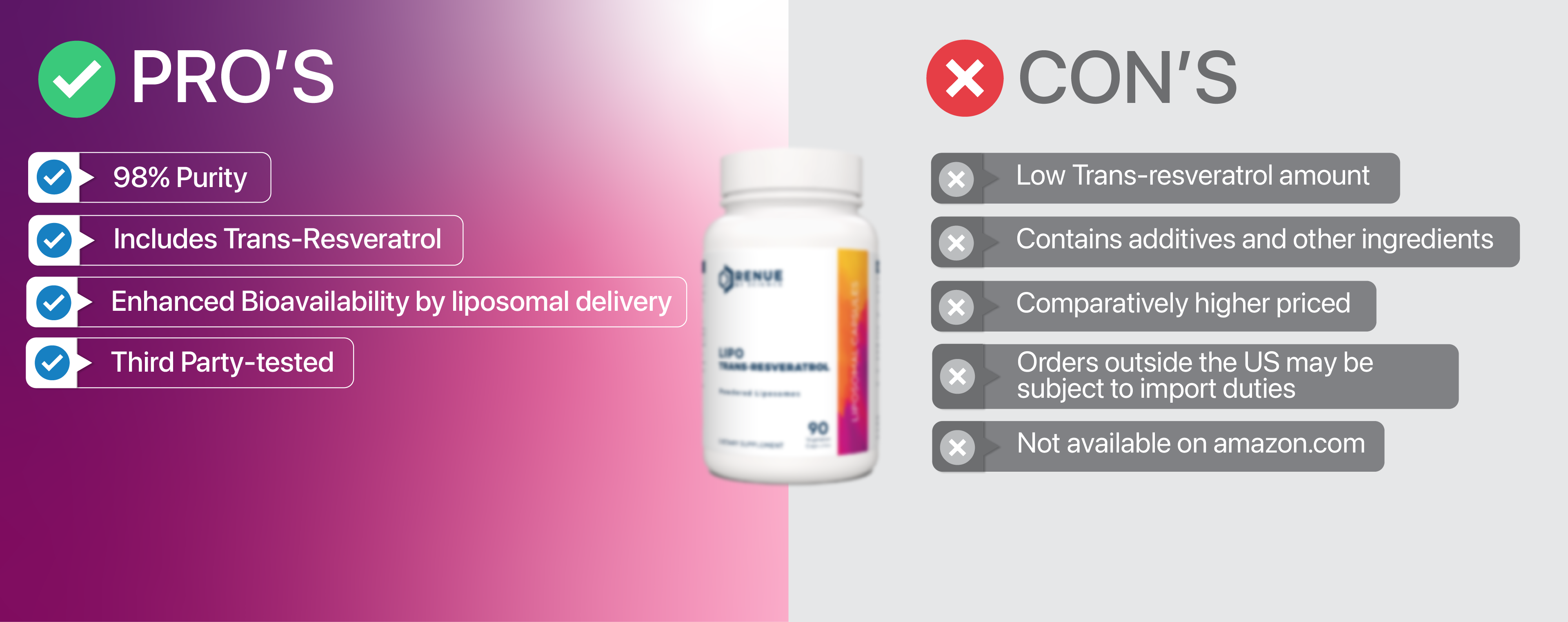
6. GenuinePurity™ Resveratrol
- Technology: Liposomal
- Source: Japanese Knotweed Extract
- Purity: 98%
- Benefits: Antioxidant, regulates blood sugar and pressure, improves heart health.
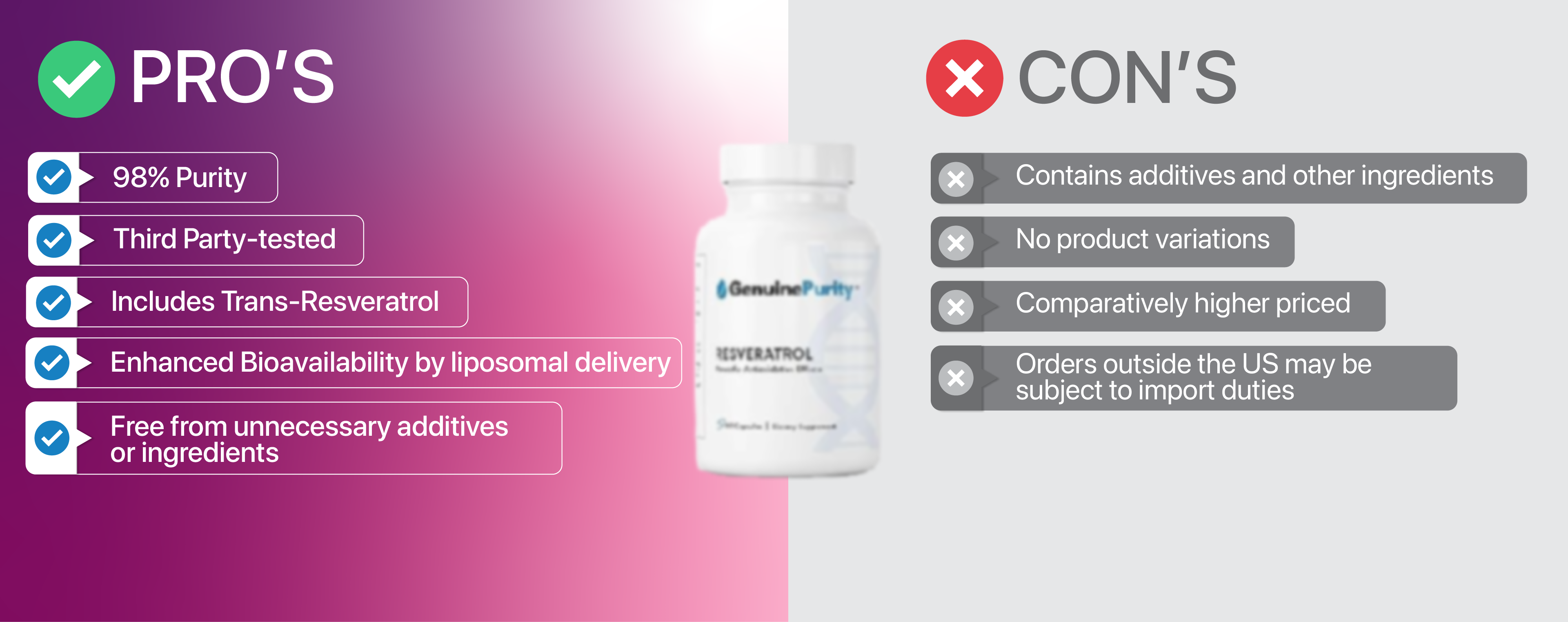
7. Omre NMN+ Resveratrol
- Combination: NMN and Resveratrol
- Purity: 98%
- Enhancer: BioPerine
- Benefits: Boosts cellular energy, anti-inflammatory, supports heart health, improves metabolism and immunity.
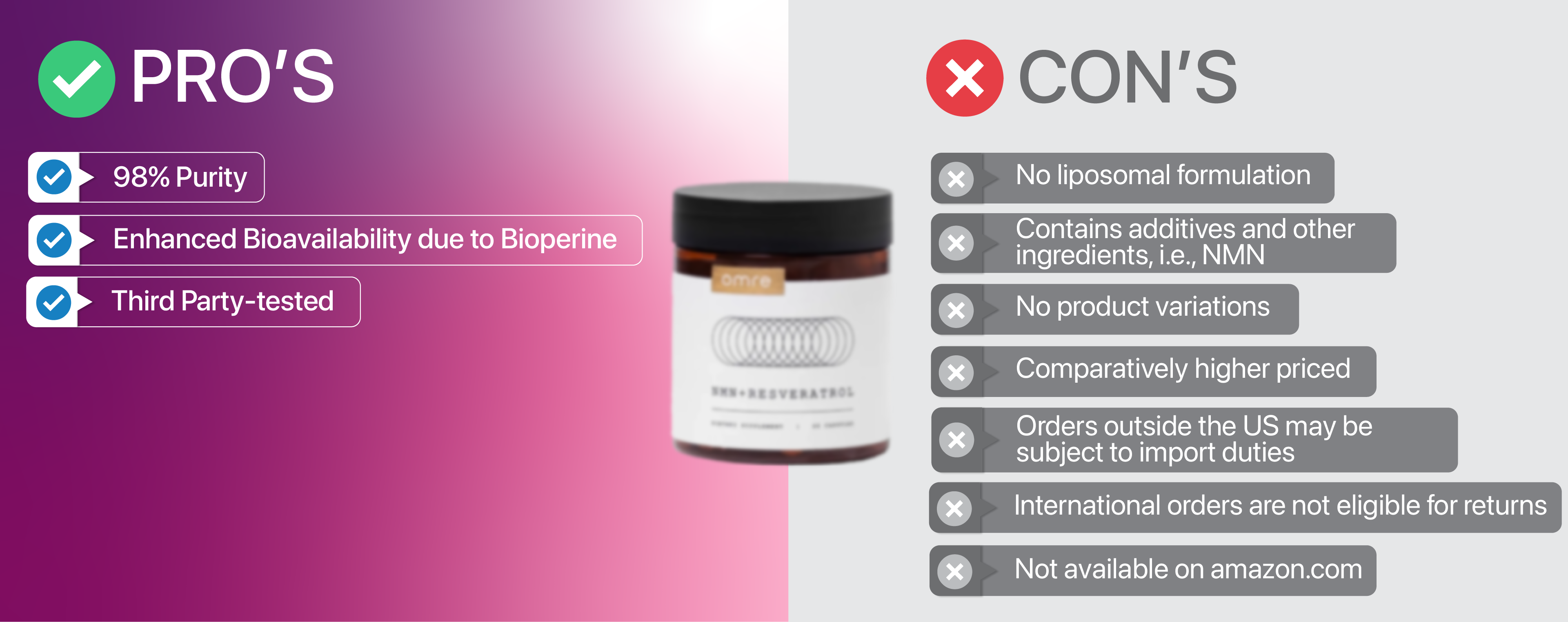
8. PartiQlar Pure Resveratrol
- Purity: Exceeding 99%
- Dosage: 500 mg per serving
- Source: Effepharm
- Benefits: Antioxidant, anti-inflammatory, improves heart health, supports brain health.
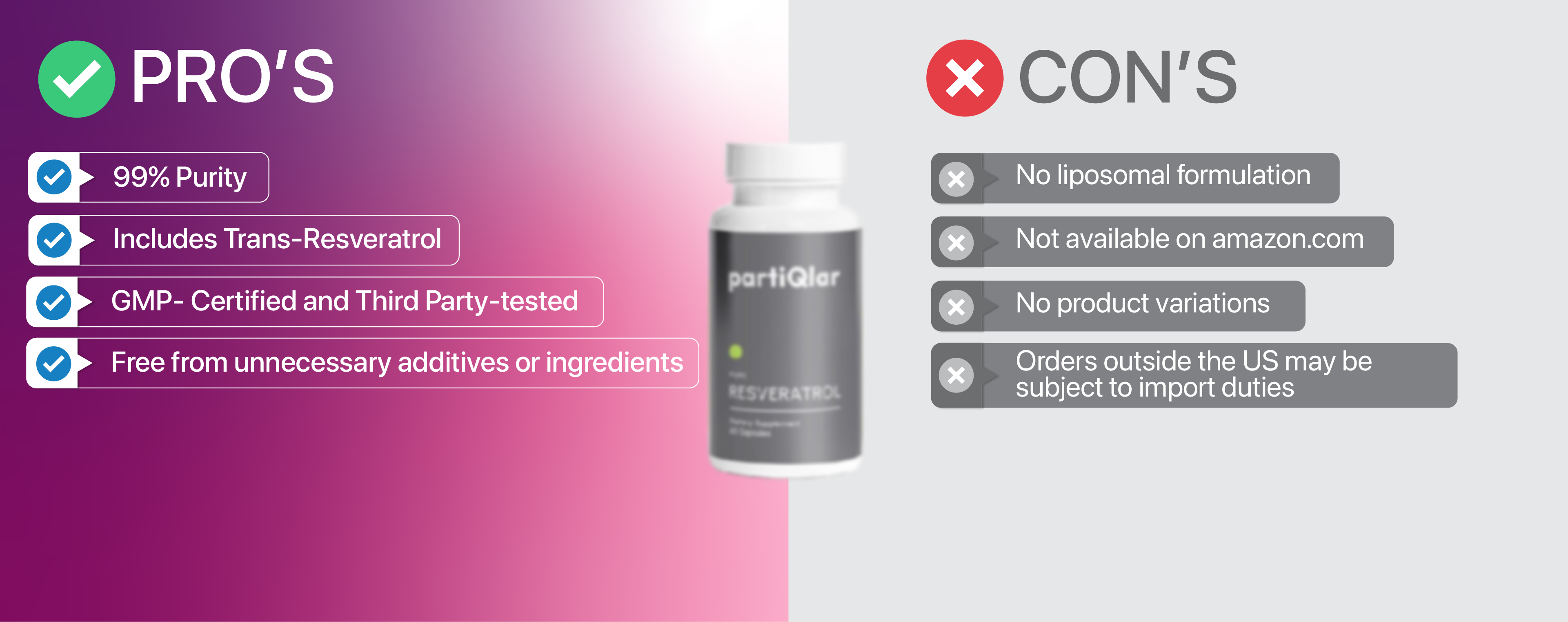
9. Momentous Resveratrol
- Certification: Informed-Sport
- Dosage: 450 mg per serving
- Source: Japanese Knotweed
- Benefits: Improves cardiovascular health, reduces inflammation, supports brain health.
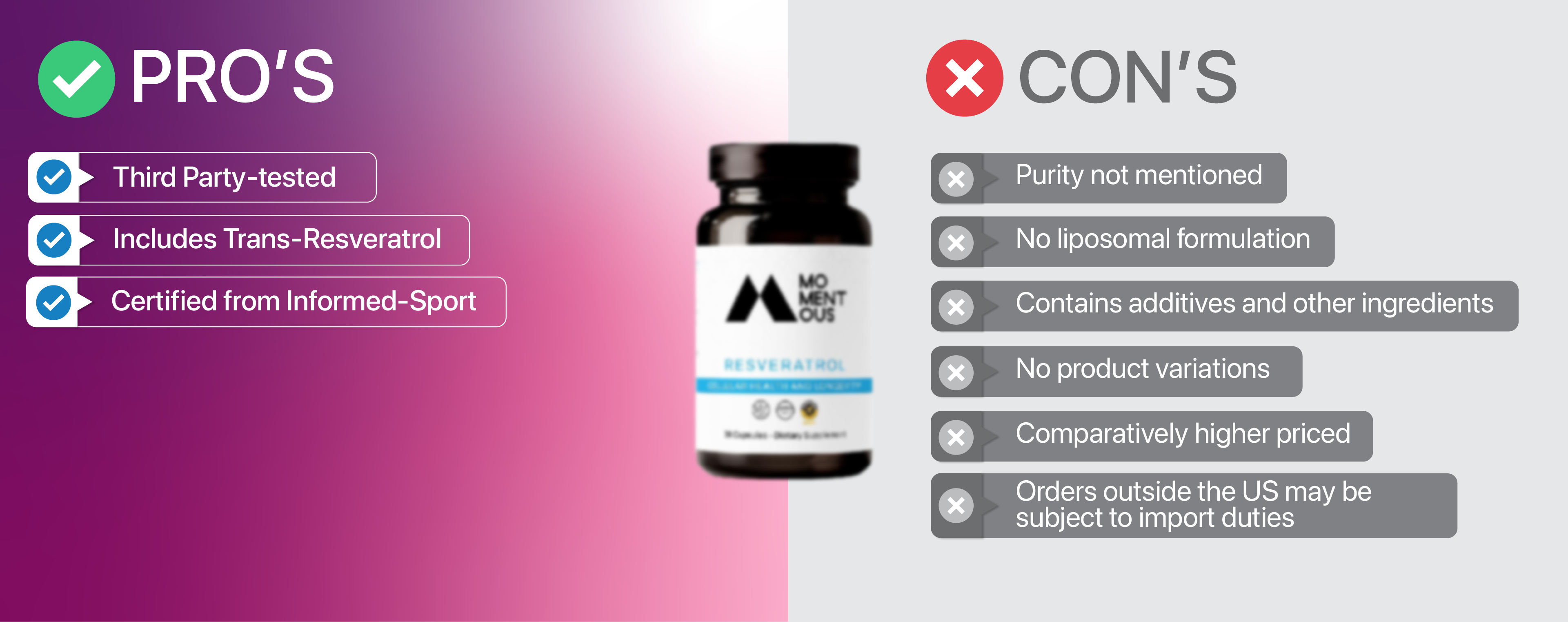
10. Life Extension Resveratrol Elite™
- Bioavailability: 10 times more than unformulated resveratrol
- Combination: Includes quercetin and fisetin
- Benefits: Protects against oxidative stress, supports brain health.
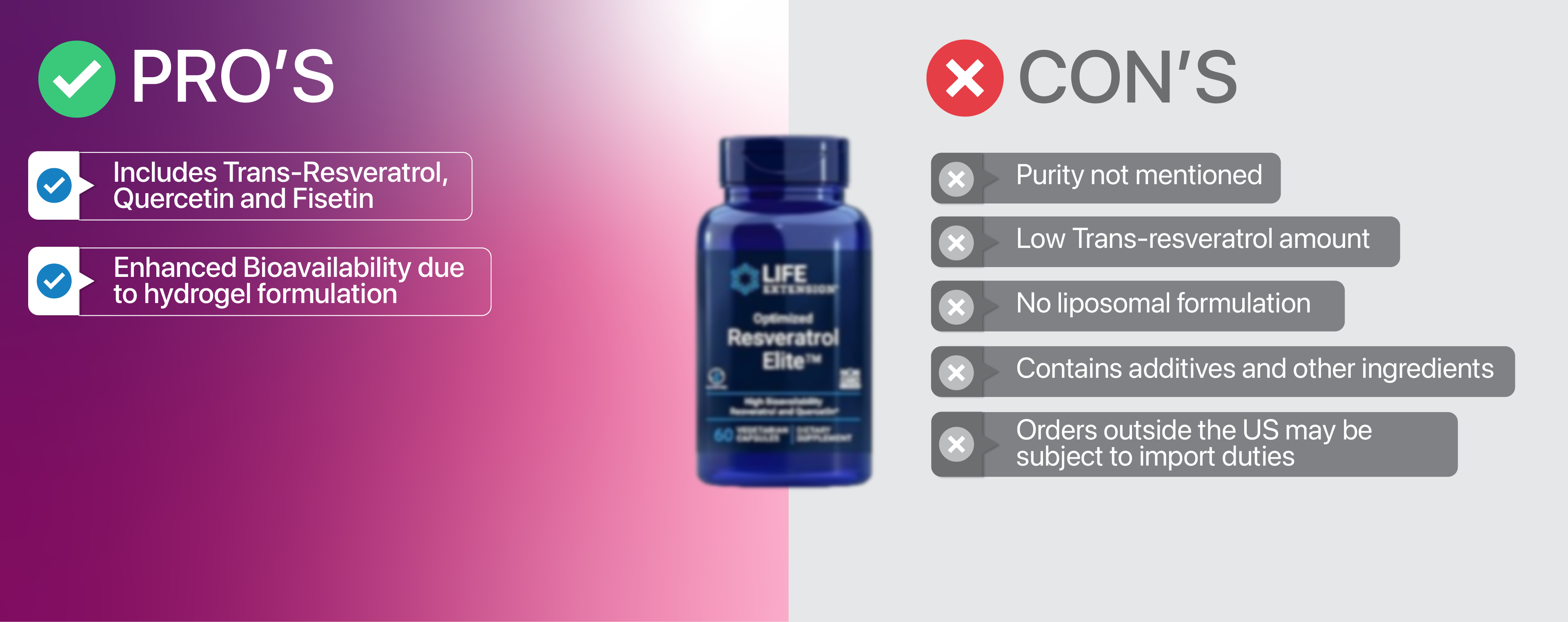
Conclusion
Selecting the right resveratrol supplement can greatly impact your health and well-being. By understanding the different types of resveratrol, such as cis-resveratrol and trans-resveratrol, and their respective benefits, you can make an informed decision. Prioritize purity and potency when selecting a supplement to ensure maximum effectiveness. Our curated list of the Top 10 Resveratrol Supplements in 2024 is designed to help you make the right choice for your health.
